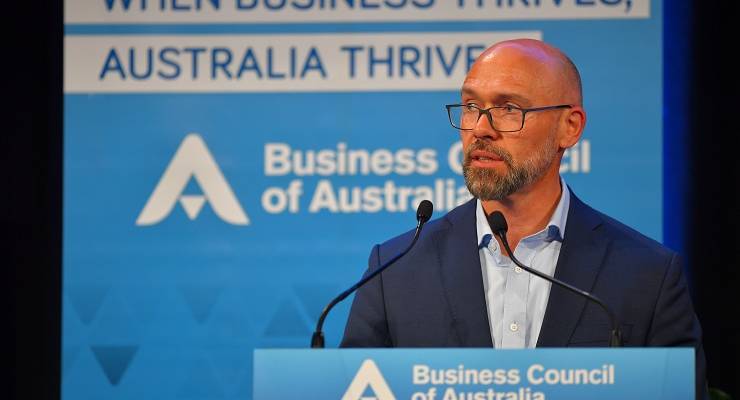
While the Business Council of Australia (BCA) continues to demand a cut in the rate of company tax, its members are paying well below the statutory level of tax, and many pay none at all.
The government insists that large corporations and multinationals are being forced to pay more tax through the closing of lucrative rorts such as transfer pricing and intra-company loans. And there’s some truth to that claim. Most of the BCA’s 130-odd members appear in the ATO’s large company tax data, excluding major law firms and the big four accounting firms, which are partnerships. Thirty of the firms paid no tax at all — down noticeably on 2017-18 — on more than $8.1 billion in taxable income and more than $78 billion in revenue.
Among the non-paying BCA members are Woodside, Amcor, Alumina Ltd, BAE, Lendlease, MYOB (previously run by new BCA chair Tim Reed; MYOB paid no tax on $368 million in revenue and $114.3 million in taxable income), Orica, Shell and Transurban. Chevron earned over $5 billion but managed to make no taxable income at all, as did Virgin Australia; Mirvac made $1.9 billion in earnings but that translated into just $770,000.
Other low payers included Incitec Pivot, which paid just 3% and Downer EDI 5%; serial dodger Qantas finally forked out 11%, Google, a serial tax offender around the world, 20%.
But 48 BCA members paid full freight, coughing up 29% or 30% tax. That number is also up significantly from 2016-17 — although how much their taxable incomes are an accurate reflection of profitability is a good question. Microsoft, which has been criticised for dodging tax in the past, had $2.2 billion in revenue but just $204 million in taxable income. AGL had $12 billion in revenue but just $64 million in taxable income; Caltex managed $728 million in taxable income from $20.5 billion; Orica just $1 million from $197 million in revenue.
Despite this, the average tax paid by a Business Council member in 2017-18 barely shifted from 2016-17. As Crikey reported this time last year, BCA members paid on average 25.3% tax that year. According to the ATO’s latest round of company tax data, that increased to a whopping 25.5% in 2017-18.
The BCA’s constant demands for lower company tax rates would have at least a modicum of credibility if the bulk of their members actually paid their way rather than exploiting loopholes to pay nothing at all.








How many of the companies that paid no tax gave a dividend?
It also undercuts one of the key arguments put forth to justify tax reductions for business: that doing so would lead to greater investment and hence greater economic growth.
That’s clearly rubbish. Businesses satisfy available market demand to the maximum extent possible, and make as little investment as possible in order to do so. Reducing taxes does not increase available market demand.
I find it very strange that politicians love to get involved in wars and surround themselves with men in uniform resplendent with medals and praise the patriotism of those who have served in wars on behalf of the politicians and the people of Australia. Surely the most patriotic thing that any citizen can ever do is pay the correct amount of tax in order to fund the equipping and enlisting of people to fight their wars for them. So perhaps we should be having parades and ceremonies to celebrate those citizens and companies who do pay the correct amount of taxes and even award medals etc where appropriate.
I find it very strange that politicians love to get involved in wars and surround themselves with men in uniform resplendent with medals and praise the patriotism of those who have served in wars on behalf of the politicians and the people of Australia. Surely the most patriotic thing that any citizen can ever do is pay the correct amount of tax in order to fund the equipping and enlisting of people to fight their wars for them. So perhaps we should be having parades and ceremonies to celebrate those citizens and companies who do pay the correct amount of taxes and even award medals etc where appropriate.
Have you flicked through the tax code for Australia Bernie. Last time I looked it had close to 1000 pages. Take a look at an equivalent for Europe or Scandinavia and you see a volume of about 200-350 pages. As an aside, the situation was no better under Labor.
Unlike your beloved Cons, though, the previous Labor Government did introduce legislation aimed at cracking down on the most egregious tax avoidance measures-such as Dividend Manipulation, Thin Capitalization & Transfer Pricing. It was actually showing signs of working in late 2012, but was one of the first things to be scrapped by the incoming Abbott Government (along with the Mining Tax & Carbon Pricing Scheme). Probably a large part of why the deficit tripled in Hockey’s first MYEFO.